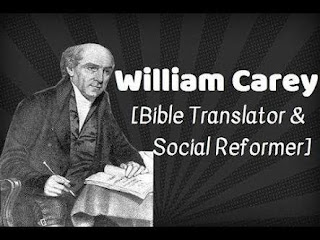Greetings dear brothers and sisters in Christ!
In this article, I want to tell you some Bible History Facts, I hope this will help you in spiritual growth.
When you think of best-selling books, which book comes into your mind?
The number one bestselling book in all of history is the Bible. In fact, the Bible has sold over five billion copies, and it’s been translated into more than two thousand languages. The Bible is the only book read by many people in the world. The Bible is so popular because the bible is matchless in its teachings, matchless in its preservation, it is matchless in its formation, the bible is matchless in its sale, and distribution, and matchless its unification. There is no single contradiction in the bible, the bible is inerrant.
The Brief history of the Bible:
The Bible the word derived from the Greek word biblía means “the books” is a collection of religious texts or scriptures sacred to Christians.
The Bible was compiled by 40 authors over a period of 1,600 years with the inspiration of the holy spirit. In many cases, they were complete strangers to one another. The job was the first book written in 1500 B.C. The books of Genesis, Exodus, Leviticus, Numbers, and Deuteronomy (the first five books of the Bible and the entirety of the Torah) were all written by Moses in about 1,300 B.C. The last book Revelation was written in 96 A.D by John.
Early manuscripts of the biblical texts did not contain the chapter and verse divisions in the numbered form familiar to modern readers. Cardinal Hugo de Sancto Caro is often given credit for first dividing the Latin Vulgate into chapters in the real sense, but it is the arrangement of his contemporary and fellow cardinal Stephen Langton who in 1205 created the chapter divisions which are used today.
Bible recorded everything from the creation to the end of the world, bible included the history of this world and future of this world, the Bible deals with good things like the origin of the human, the purpose of the man, it deals with morality and eternal life. In 2 Peter 1:20,21 Peter says “Above all, you must understand that no prophecy of Scripture came about by the prophet’s own interpretation of things. 21 For prophecy never had its origin in the human will, but prophets, though human, spoke from God as they were carried along by the Holy Spirit.”
God breathed so that his book came to us. In total 66 books of the bible (old testament-39, new testament -27) a total of 1,189 chapters and 31,102 verses are the voice of God. In the initial times, the Bible was written in 3 languages Hebrew, Greek, and Aramaic. So far bible was translated in 3000 languages out of 6000 languages almost 99% of the world population is in these 3000 languages.
Bible History Facts in Translation.
The Brief history of the Bible in Translation and how it came to be the most widely distributed book in the world, is a remarkable story. The drama begins in antiquity, many centuries before Christ. The scribes, priests, prophets, and poets of the Hebrew people kept a record of their history with God, along with their inspired insights and hopes. Because these writings were a vital part of Hebrew life, they were carefully copied and recopied many times. As time went on, these sacred writings were gathered into three collections known as “the Law,” “the Prophets,” and “the Writings.” Eventually, these three collections came to be considered the canon, or official list, of the Hebrew Bible.
However, when Alexander the Great and his successors conquered the ancient world, Greek became the common language of the people. So in the third century B.C.E., the Hebrew Scriptures were translated into Greek for Jews and others living outside of Palestine. This Greek translation was called “the Septuagint.” It contained all the books of the Hebrew Bible, plus an extra seven books not originally in the Hebrew collection, called the Apocrypha. This was the Bible used by Jesus and the early church.
Greek remained the common language for hundreds of years, so when the early Christians recorded the life of Jesus and the teachings of the Christian faith, they also wrote in Greek.
The earliest writings of the New Testament are the letters of the Apostle Paul. He wrote to people in specific places, but other believers also wanted copies of Paul’s teachings, so his letters began to circulate. The Gospels soon followed, as well as other letters, exhortations, sermons, and writings.
Eventually, guided by the Spirit of God, the church put together a collection that most accurately testified to Jesus Christ. By the end of the fourth century, church councils reached a consensus and the canon of the New Testament was officially recognized. Also in the fourth century, Emperor Constantine authorized the creation of fifty copies of the complete Scriptures, and possibly for the first time, the Old and the New Testaments came together as one book.
Almost as soon as the Bible was formed, scholars began translating into other languages for Christians living in other parts of the world. It was important to the early church that as many people as possible had access to the Scriptures. The most significant translation of the early church was a Latin version called the Vulgate.
A scholar named Jerome spent over twenty years living and studying in Palestine in order to make an official translation of the Hebrew and Greek Scriptures into Latin. The Vulgate eventually became the official text of western Christianity.
However, the Latin-speaking Roman Empire fell in the fifth century, and tribes such as the Vandals, Goths, and Huns invaded Europe. Christian monasteries began to collect biblical texts -especially Jerome’s Vulgate -preserving and copying them throughout the centuries. By this time missionaries and soldiers had brought the gospel to the British Isles and translated the Vulgate into the common language of the people.
But many rulers and church leaders felt that the Scriptures in the popular language of the people challenged the Church’s authority. Even though Latin had long-ceased to be the common language of the people, it became a crime to possess or circulate non-Latin copies of the Bible.
However, not all leaders felt the same way. In England, late in the fourteenth century, a churchman and political figure named John Wycliffe and his followers to translated the Scriptures into the common language, and it was completed the year Wycliffe died. The authorities did all they could to suppress this English Bible, going so far as to dig up Wycliffe’s body and burn it. They banned the use of any new translation and many people were persecuted for copying or reading translated Scriptures.
In spite of this, the English people hungered to hear the biblical story in their language. But copies of the Bible had to be made by hand, so complete Bibles were scarce and very expensive…until a printing breakthrough occurred in the middle of the fifteenth century.
In Germany, a goldsmith named Johann Gutenberg created the printing press, allowing books to be printed on a machine rather than by hand or woodblock.
The first large book produced by Gutenberg’s press was a Bible in Latin.
However, by the middle of the sixteenth century, the Latin Bible had been translated and printed into 14 other languages.
It was around this time that a young scholar from England named William Tyndale came upon the scene. Sometimes called the Father of the English Bible, Tyndale believed that people had the right to read and hear the Scriptures in their own language. He eventually went to Germany where he translated the New Testament from Greek into English, and it became the first printed English New Testament. Copies were smuggled into England, and secretly purchased and read.
Even though readers and owners were arrested, the Scriptures kept flowing in. Tyndale went to Antwerp to work on a translation of the Old Testament, but before he had completed this work, he was betrayed, arrested, condemned a heretic, and publicly executed. His last words reportedly were, “Lord, open the King of England’s eyes!” Tyndale’s prayer was answered three years later.
The first authorized Bible in the English language, called the Great Bible, was published as the result of King Henry VIII’s injunction that an English Bible is placed in every parish. People flocked to the churches to listen to the reading of the Scriptures in their own language.
Early in the seventeenth century, King James, I authorized a new translation of the Scriptures. This translation, known as the Authorized or King James Version, is still read today, but it was only the beginning of English bible translation. Since the Tyndale Bible, there have been close to 900 English translations or paraphrases of the Bible.
This, coupled with versions in 2,000 other languages, makes the Bible the most-read, most-translated, and best selling book in history. The fact that virtually anyone on earth can have the Scriptures in their own languages due to the perseverance and sacrifice of those who never wavered from the belief that the Bible should be available to anyone who wishes to read it.
However, that does not mean that every person on earth has open access to the Scriptures. In some areas of the world today, the Bible continues to be seen as a revolutionary and dangerous book, and its publication or distribution is either highly monitored or banned outright.
Many people can face persecution, imprisonment, or death for owning or teaching from the Bible. Perhaps you wonder why this book is so popular that people would risk their lives to obtain one. Those who do so believe that the Bible is more than simply a collection of stories or a book of history. They understand it to be the very Word of God, revealing his love, encouragement, and instruction to humanity.
In 1814 William Carey came to India and translated the Bible into 36 Indian languages Bengali, Oriya, Marathi, Hindi, Assamese, and Sanskrit. He also translated parts of it into 29 other languages and dialects.
- Martin Luther translated the Bible into Japanese, Henry Martin translated the bible into Urdu, and Arabic, Adoni Ram Judson translated the bible into Barma.
- Watch the video on Bible history by Johnwesly.
Introduction of Bible PDF in Telugu click here.
Also, read the article on How to study the Bible using bible study tools.
The Bible is the greatest gift given by God to the world.
- Abraham Lincoln
- God bless you


.jpeg)

.jpeg)


0 Comments